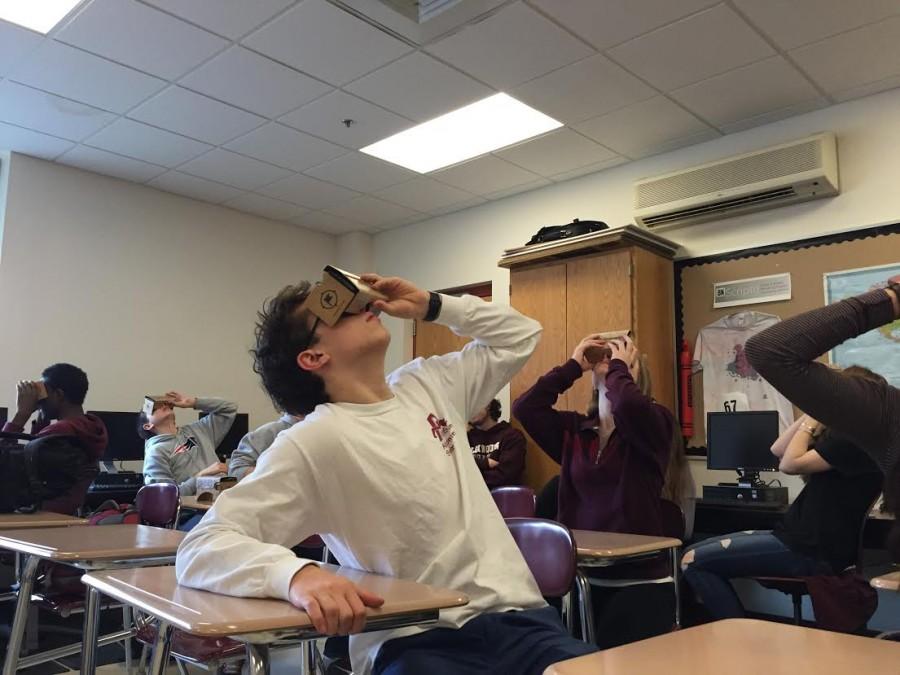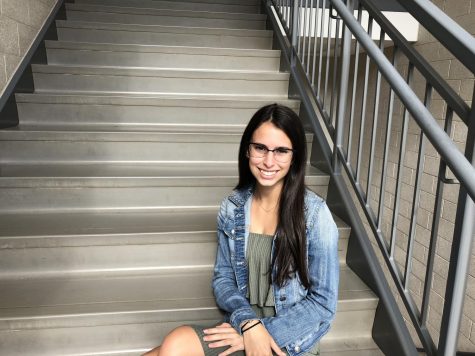Students explore Google Glasses expedition
April 4, 2016
Google representatives presented their latest and most innovative technology, Google Expedition, to Algonquin students on Tuesday, March 2.
Instructional technology teacher Julie Doyle explained the reasoning behind Google representatives coming to Algonquin.
“They started targeting lower economic regions to give kids who don’t ever go anywhere the experience of going on a field trip. But now they have expanded to as many schools as possible,” Doyle said. “They are looking for feedback from Algonquin kids to see what they like and what they don’t like.”
A mobile phone is placed in a cardboard, binocular shaped box, with a lens in front. When looking through the lenses, it is a new setting. From the Great Wall of China to ocean reefs, the 360 degree view makes it realistic.
Junior Isabelle Molander was amazed by the 360 degree view.
“I liked when we went to the Globe Theatre because it’s a place I would never be able to visit if it wasn’t for this. It was so cool, I actually felt like I was there,” Molander said.
Although some students enjoyed the Google Expedition, some disagreed with their peers’ opinions.
“Honestly I think this is a piece of garbage,” Junior Mark Howells said. “It’s a simple iPhone, all they do is stick it in a piece of cardboard and this takes away the experience of going to the place. I mean, it’s cool alright, but only for a couple seconds.”
Doyle’s background in technology helped when explaining to students how the expedition works.
“To develop each different expedition and all the photos that are in the expedition they used sixteen GoPro cameras,” Doyle said. “Then they take digital stills from all the videos and they stitch them together and create something called a photo sphere.”
Google Expedition is a way for students to experience traveling to other countries and historic monuments without leaving their classroom.
“It would be an enhancement to our curriculum,” said economics and computers teacher Catherine Griffin. “Especially in subjects like English and history to see places that have been written about or events that happened, it would add that extra layer to the curriculum.”










